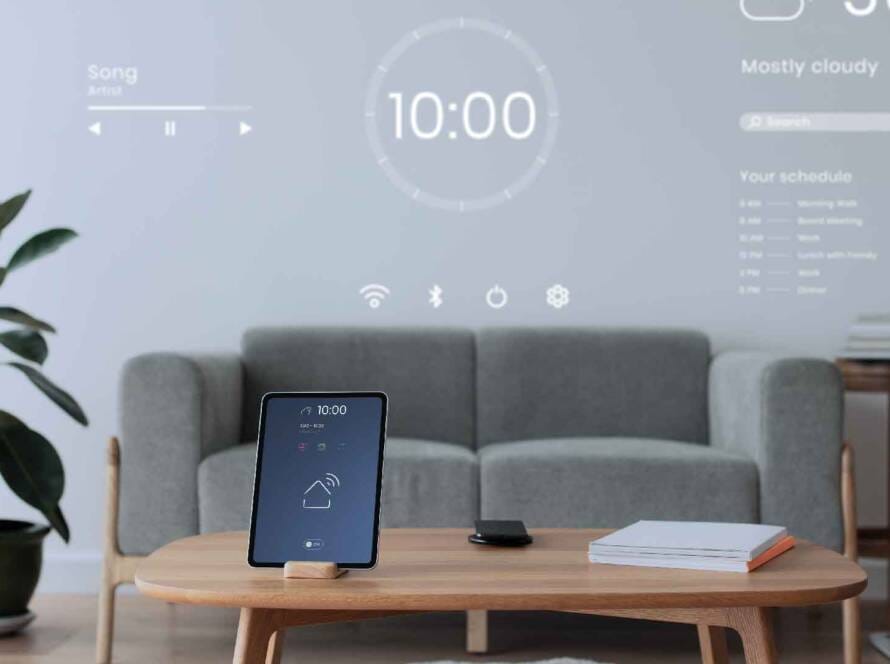The idea of a smart home was once considered futuristic, but today, it has become an integral part of modern living. With the rise of the Internet of Things (IoT), artificial intelligence, and advanced connectivity, our homes are no longer passive spaces. They have transformed into intelligent ecosystems designed to make everyday life more convenient, efficient, and secure. The future of smart homes promises even greater innovation, reshaping how we live, work, and interact with our surroundings.
Seamless Integration of Connected Systems
At the core of the smart home revolution is seamless integration. Lighting, heating, cooling, entertainment, and security systems are now interconnected, allowing them to communicate and respond automatically. Imagine waking up in the morning: your smart thermostat adjusts the temperature, your blinds open to let in natural light, and your coffee machine starts brewing—all without you lifting a finger. This level of automation not only enhances comfort but also saves valuable time.
Energy Efficiency and Sustainability
A major driver behind the adoption of smart homes is energy efficiency. Connected devices track energy consumption in real time, identifying patterns and suggesting ways to reduce waste. Smart lighting systems dim or switch off when rooms are unoccupied, while intelligent thermostats optimize heating and cooling based on weather conditions and occupancy. By integrating renewable energy sources such as solar panels, smart homes are playing a key role in promoting sustainability and lowering utility bills.
Enhanced Security and Peace of Mind
Smart security systems are transforming home protection. From video doorbells and motion sensors to AI-powered surveillance cameras, homeowners now enjoy real-time monitoring and instant alerts. Remote access via smartphones ensures that you can check in anytime, anywhere. Advanced systems even use facial recognition to differentiate between family members, visitors, and potential intruders. This combination of security and convenience provides unparalleled peace of mind.
Personalization and Lifestyle Enhancement
The future of smart homes lies in personalization. AI-powered platforms learn from user habits and preferences, creating tailored experiences. Whether it’s adjusting ambient lighting to match your mood, playing your favorite playlist when you arrive home, or automatically ordering groceries when supplies run low, smart systems adapt to individual lifestyles. This personalization goes beyond convenience—it creates a living environment that feels uniquely yours.
Health and Well-being
Smart homes are also evolving to prioritize health and well-being. Air quality monitors detect pollutants and allergens, while connected purifiers and humidifiers maintain optimal indoor conditions. Smart mattresses track sleep quality, and wearable integrations provide data for personalized wellness recommendations. By merging health technology with daily living, connected homes support healthier, more balanced lifestyles.
The Role of AI and Voice Assistants
Voice assistants like Amazon Alexa, Google Assistant, and Apple Siri are becoming the central hubs of smart homes. As AI technology advances, these assistants will move from simple command-response interactions to predictive and conversational engagement. Instead of asking your assistant to dim the lights, it may proactively adjust settings based on your routine or mood. This shift marks the evolution of homes into intelligent companions rather than passive environments.
Looking Ahead: The Smart Homes of Tomorrow
The next generation of smart homes will integrate even more advanced technologies. From augmented reality (AR) interfaces that allow homeowners to control devices visually to blockchain-based systems that secure personal data, innovation will continue to push boundaries. Furthermore, interoperability standards will enable devices from different brands to work together seamlessly, eliminating current limitations of fragmented ecosystems.
Conclusion
The future of smart homes is not just about convenience—it’s about creating environments that are intelligent, sustainable, secure, and deeply personalized. By leveraging connected systems, AI, and IoT, everyday living is being enhanced in ways that were once unimaginable. As technology continues to evolve, the smart home will no longer be a luxury but a standard, redefining how we experience life inside our homes.


